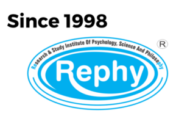A proper noun is a type of noun that refers to a specific, unique person, place, thing, or entity and is typically capitalized. Proper nouns are used to distinguish one particular item from others of the same kind. They can include the names of individuals, specific locations, organizations, titles, and more. Proper nouns are not preceded by articles (like “a” or “an”) and are often used to give a distinct identity to the entities they represent.
Examples of proper nouns:
- Person: John Smith
- Place: Paris
- Thing: The Eiffel Tower
- Organization: NASA
- Title: “Harry Potter and the Sorcerer’s Stone”
Rules of proper noun
The following are common rules associated with proper nouns:
Capitalization: Proper nouns are always capitalized. This includes the first letter of the word, regardless of its placement in a sentence. For example, “Mary,” “London,” and “Toyota.”
- Unique Individuals or Entities: Proper nouns refer to specific, unique individuals, places, things, or entities. They help distinguish one particular item from others of the same kind.
- Articles: Proper nouns are not preceded by articles (such as “a” or “an”). For instance, you would say “the Eiffel Tower” (proper noun) but “a tower” (common noun).
- Specificity: Proper nouns provide a specific name or title and are not used to refer to general or common items. For example, “Mount Everest” is a proper noun, while “mountain” is a common noun.
- Titles and Names: Titles and names, including those of books, movies, and organizations, are treated as proper nouns and are capitalized. For instance, “The Great Gatsby,” “NASA,” and “President Johnson.”
- Geographical Names: Names of countries, cities, rivers, mountains, and other geographical locations are considered proper nouns and are capitalized. Examples include “Italy,” “New York City,” “Nile River,” and “Rocky Mountains.”
Remembering and applying these rules helps ensure the correct usage of proper nouns in writing, maintaining clarity and precision in language.
Usage of proper noun
Proper nouns are used in various contexts to refer to specific, unique individuals, places, things, or entities. Here are some common usage examples:
- Names of People:
- Example: I met John at the cafe yesterday.
- Names of Places:
- Example: We’re planning a trip to visit Paris next summer.
- Titles and Names of Works:
- Example: “I just finished reading To Kill a Mockingbird by Harper Lee.”
- Names of Days and Months:
- Example: We have a meeting scheduled for Monday.
- Names of Holidays:
- Example: We celebrate Christmas with our family every year.
- Names of Organizations:
- Example: She works for Google as a software engineer.
- Names of Brands:
- Example: My favorite smartphone is made by Apple.
- Geographical Features:
- Example: The Amazon River is the second-longest river in the world.
- Specific Structures:
- Example: We visited the Colosseum during our trip to Rome.
- Celestial Bodies:
- Example: Mars is the fourth planet from the sun.
In each case, the use of proper nouns helps identify and specify a particular instance, providing clarity and precision in communication. Proper nouns are always capitalized, and they play a crucial role in conveying specific and unique references in written and spoken language.
In contrast to common nouns, which refer to general items, proper nouns specify particular instances and are treated with capitalization to signify their uniqueness.
Few more examples of proper noun:-
Here are a few more examples of proper nouns:
- Names of People:
- Example: My friend’s name is Sophia.
- Names of Places:
- Example: We visited The Louvre museum in Paris.
- Titles and Names of Works:
- Example: The Mona Lisa is displayed at The Louvre.
- Names of Days and Months:
- Example: Our anniversary is on February 14.
- Names of Holidays:
- Example: We’re planning a trip for Easter.
- Names of Organizations:
- Example: Microsoft is a leading technology company.
- Names of Brands:
- Example: I love my Nike sneakers.
- Geographical Features:
- Example: The Himalayas are a majestic mountain range.
- Specific Structures:
- Example: We toured the Statue of Liberty in New York.
- Celestial Bodies:
- Example: Jupiter is the largest planet in our solar system.
- Historical Events:
- Example: World War II had a profound impact on global history.
- Characters from Literature:
- Example: Sherlock Holmes is a famous fictional detective.
Remember, proper nouns are specific names and are always capitalized. They help identify unique entities and contribute to the clarity and precision of language.
If you want to speak English naturally and fluently just like your mother tongue, click here.

